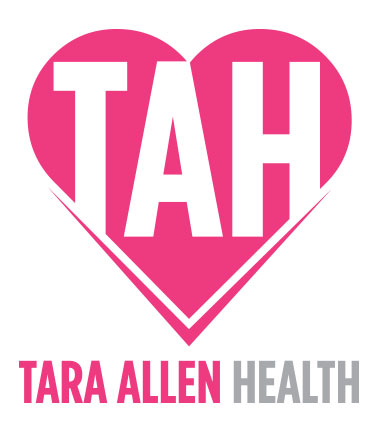With the health caucus In D.C. a couple of weeks ago and the petition of over 400,000 marched to Kellogg's asking for them to drop the artificial dyes / ingredients in MI last week, "ultra-processed" food seems to be on most people's minds lately.
And for great reason!
You might be asking, “What’s the big deal?” First off, let’s clarify what we mean by “ultra-processed.” The term refers to foods that have been significantly altered from their original form. These are often loaded with additives like sweeteners, preservatives, colorings, emulsifiers and flavor enhancers. Think of your favorite convenience foods: instant noodles, sugary cereals, middle aisle bread, frozen dinners, crackers with 25 ingredients.... They may taste good and be super convenient, but they come with a hidden cost.
It's pretty wild that we as a society have gotten to the point where we often don't know what's in the food we eat. We'd never take a random pill from a stranger but when we aren't aware of what we're consuming, that's pretty much what we're doing!
Ultra-processed foods got a shout out or 2 in this poem I recently wrote and shared on Instagram.
Examples of Ultra-processed Foods:
Most pre-made drinks and sodas
Packaged snacks (think chips and cookies)
Instant soups and noodles
Processed meats (like hot dogs and deli meats)
Ready-to-eat meals
Many (not all) foods sold in boxes or bags -- check ingredients
Most food items with more than 5 or 6 ingredients (exceptions? Sure! Example: If you find a pre-made tomato sauce with 10 ingredients and they're all ingredients you'd use if you were to make it yourself in your kitchen -- like tomatoes, veggies, olive oil, spices and herbs -- that would be considered more minimally processed)
Research shows that ultra-processed foods can contribute to a variety of health issues, including:
Weight Gain and Obesity: Ultra-processed foods are often high in calories and low in nutrients. They can lead to overeating because they’re engineered to be hyper-palatable—meaning they hit all the pleasure points in our brains. They're actually designed to hijack your hunger hormones and bypass your satiety signals. Not only that, but our body senses that we're still missing the nutrients that were missing / stripped from the ultra-processed foods so hunger and cravings stay high until that threshold has been met as well.
Metabolic Syndrome: This cluster of conditions (high blood pressure, high blood sugar, excess body fat around the waist, and maladaptive lipids / cholesterol) has been linked to diets high in ultra-processed foods.
Inflammation: Studies suggest that these foods can promote chronic inflammation in the body, which is a root cause and risk factor for many diseases.
Gut Health Issues: A diet high in ultra-processed foods can negatively impact gut microbiota and the integrity of the gut lining, potentially leading to digestive issues, affecting mental health, metabolic function and other health and body composition goals.
This is YOUR life. You don’t have to give up your favorite foods or throw away everything in your pantry. Instead, you might think about searching for a less processed alternative when you finish the containers / packages you currently have. If working within a tight budget, I find making some more food at home helps offset some of the additional cost of purchasing some higher quality convenient items. Example: maybe you swap your Ritz crackers for Mary's Gone Crackers (costs more) and take jam off next week's grocery list, making your own from some fruit and chia seeds you already have in your home (saves $).
Here are some simple swaps to help you transition to less processed versions while keeping things tasty and enjoyable:
Instead of Sugary Cereals: Try oatmeal with egg whites or protein powder mixed in and nuts or nut butter. You’ll get more fiber and nutrients without the sugar crash.
Instead of Packaged Snacks: Go for whole fruits with nuts or seeds, veggie sticks with hummus, or homemade popcorn seasoned with your favorite spices and an organic meat stick. They’re satisfying and nutritious.
Instead of Instant Noodles: Opt for lupini bean or lentil pasta or quinoa tossed with your favorite vegetables, protein source and a homemade sauce. It’s quick, easy, and way more wholesome.
Instead of Processed Meats: Choose fresh, lean proteins like chicken, fish, or legumes. They’re versatile and can be seasoned to fit any dish / cuisine.
Instead of Frozen Meals: Make a batch of your favorite dish (like chili or stir-fry) and freeze portions for busy days. You’ll know exactly what’s in it.
Bonus: These tips won't keep you tied to the kitchen and will likely also save you money as you make progress on your optimal health and body composition goals. Transitioning to less ultra-processed foods doesn’t have to be daunting. It’s all about making informed choices and enjoying the progress.
Be creative about reducing ultra-processed foods in your life and ... enjoy the increased vibrancy!
XO,
Tara
P.S. If you need help achieving your health + body composition goals, there are two ways we can work together:
1) 1:1 coaching (spots are limited... fill out this application if you are ready to commit.
2) TRANSFORM: Body + Mind, my 28-day metabolism-boosting course. Waitlist is open now for the January round.
